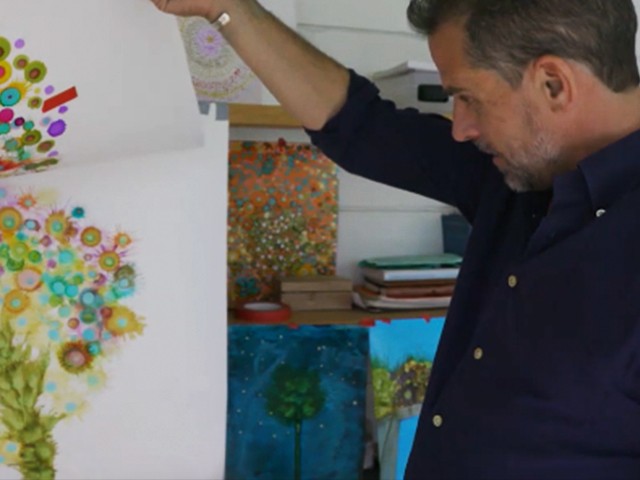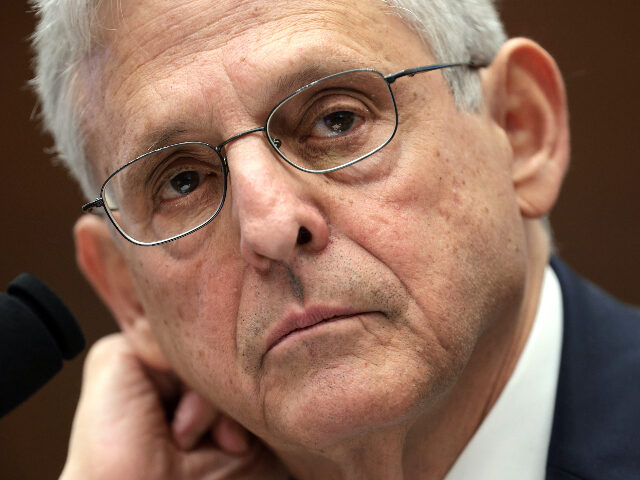Attorney General Merrick Garland refused to answer during Wednesday’s Judiciary Committee hearing if Hunter Biden’s art sales could be used to influence President Joe Biden.
“Hunter Biden is selling art to pay for his $15,000 a month rent in Malibu,” Rep. Matt Gaetz (R-FL) prefaced. “How can you guarantee that the people buying that aren’t doing so to gain favor with the president?”
“It’s the job of the Justice Department is to investigate criminal allegations,” Garland stated.
“Are you investigating this? Someone who bought Hunter Biden’s art ended up with a prestigious appointment to a federal position. Doesn’t it look weird that he’s become this immediate success in the art world as his dad is president of the United States?” Gaetz asked.
“I’m not going to comment about it,” Garland replied.

Hunter Biden with his artwork in 2021. (ABC News/screenshot)
Hunter Biden reportedly knows the identities of at least two of his art buyers, one of whom is reportedly a Democrat donor, Elizabeth Hirsh Naftali, whom President Joe Biden appointed to the Commission for the Preservation of America’s Heritage Abroad.
Naftali visited Joe Biden’s White House 13 times after the president’s son first showcased his paintings at his art dealer’s gallery in New York City. White House visitor logs show Naftali’s visits occurred in December 2021, just after Hunter Biden first exhibited his paintings in November 2021.
The White House previously claimed Hunter Biden would not know the identities of the “anonymous” art buyers when questioned about conflicts of interest and ethics concerns.
RELATED: White House Under Fire After Hunter Biden Art Show Ethics Debacle
The White HouseHunter Biden’s art schemes are “reasonable,” former White House Press Secretary Jen Psaki claimed, suggesting the president’s son “is not involved in the sale or discussions about the sale of his art” and that he will not be “informed” of “who is purchasing his art.”
The art industry is known for shady business transactions. A Senate subcommittee report detailed in 2020 how the art market serves as a vehicle for money laundering.
House Oversight Committee Chair James Comer (R-KY) raised concerns in July that the Biden family could be involved in racketeering, the act of operating a business with illegally derived income through money laundering.
Follow Wendell Husebø on Twitter @WendellHusebø. He is the author of Politics of Slave Morality.

COMMENTS
Please let us know if you're having issues with commenting.